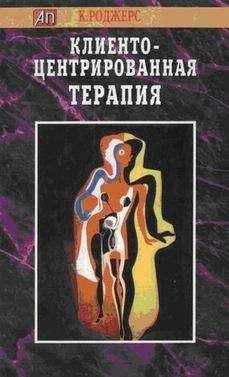Карл Роджерс - О становлении личностью
Если мы выбираем использовать наши научные знания для того, чтобы сделать людей свободными, это потребует от нас искренне и открыто жить лицом к лицу с великим парадоксом наук о поведении. Мы признаем, что если рассматривать поведение как научный феномен, то лучше всего, конечно, считать, что оно вызывается предшествующей причиной. Это важный научный факт. Но способность к ответственному личному выбору, которая есть наиболее существенным признаком человека, а также главным опытом психотерапии, существующим до какого-либо научного исследования, – это не менее важный факт нашей жизни. Нам нужно жить, понимая, что отрицать реальность существования ответственного личного выбора столь же неразумно и недальновидно, как отрицать возможность существования наук о поведении. Тот факт, что эти два важнейших элемента нашего опыта кажутся взаимоисключающими, имеет, по-видимому, такое же значение, как и противоречие между волновой и корпускулярной теориями света, которые обе могут быть признаны правильными, хотя и несовместимы друг с другом. Мы не можем с пользой для дела отрицать нашу субъективную жизнь, равно как не можем отрицать и объективное описание этой жизни.
В заключение хочу сказать, что глубоко убежден в невозможности науки без субъективного выбора ценностей, которых мы желаем достичь. Избранные нами ценности всегда лежат вне той науки, которая обеспечивает их достижение. Определение целей и результатов, которые мы хотим получить, всегда должно осуществляться за пределами науки, которая их достигает. Мне это позволяет сделать обнадеживающий вывод о том, что человек с его способностью к субъективному выбору может и непременно будет существовать всегда, прежде и независимо от его любого научного предприятия. До тех пор пока мы – отдельные лица и целые группы – не откажемся от нашей способности к субъективному выбору, мы всегда будем свободными людьми, а не просто пешками нами же созданной науки о поведении.
Литература
Глава 3
Baldwin, A.L., J.Kalhorn, and F.H.Breese. Patterns of parent behavior. Psychol. Monogr., 1945, 58, No. 268, 1-75.
Betz, B.J., and J.С.Whitehorn. The relationship of the therapist to the outcome of therapy in schizophrenia. Psychiat. Research Reports #5. Research techniques in schizophrenia. Washington, D.C., American Psychiatric Association, 1956 89-117.
Buber, M., and C.Rogers. Transcription of dialogue held April 18, 1957, Ann Arbor, Mich. Unpublished manuscript.
Dittes, J.E. Galvanic skin response as a measure of patient's reaction to therapist's permissiveness. J. Abnorm. & Soc. Psychol., 1957, 55, 295-303.
Ends, E.J., and C.W. Page. A study of three types of group psychotherapy with hospitalized male inebriates. Quar. J. Stud. Alcohol, 1957. 18, 263-277.
Farson, R.E. Introjection in the psychotherapeutic relationship. Unpublished doctoral dissertation, University of Chicago, 1955.
Fiedler, F.E. Quantitative studies on the role of therapists feelings toward their patients. In Mowrer, O.H. (Ed.), Psychotherapy: theory and research. New York: Ronald Press, 1953, Chap. 12.
Greenspoon, J. The reinforcing effect of two spoken sounds on the frequency of two responses. Amer. J. Psychol, 1955, 68, 409-416.
Halkides G. An experimental study of four conditions necessary for therapeutic change. Unpublished doctoral dissertation, University of Chicago, 1958.
Harlois, H.F. The nature of love. Amer. Psychol., 1958, 13, 673-685.
Heine, R.W. A comparison of patients' reports on psychotherapeutic experience with psychoanalytic, nondirective, and Adlerian therapists. Unpublished doctoral dissertation, University of Chicago, 1950.
Lindsley, O.R. Operant conditioning methods applied to research in chronic schizophrenia. Psychiat. Research Reports #5. Research techniques in schizophrenia. Washington, D.C.: American Psychiatric Association, 1956, 118-153.
Page, C.W., and E.J.Ends. A review and synthesis of the literature suggesting a psychotherapeutic technique based on two-factor learning theory. Unpublished manuscript, loaned to the writer.
Quinn, R.D. Psychotherapists' expressions as an index to the quality of early therapeutic relationships. Unpublished doctoral dissertation, University of Chicago, 1950.
Rogers, C.R. The necessary and sufficient conditions of psychotherapeutic personality change. J. consult. Psyched., 1957, 21, 95-103.
Seeman, J. Counselor judgments of therapeutic process and outcome. In Rogers, C.R., and R.F.Dymond (Eds.). Psychotherapy and personality change. University of Chicago Press, 1954, Chap. 7.
Verplanck, W.S. The control of the content of conversation: reinforcement of statements of opinion. J. Abnorm. & Soc. Psychol, 1955, 51, 668-676.
Whitehom, J.C., and B.J. Betz. A study of psychotherapeutic relationships between physicians and schizophrenic patients. Amer. J. Psychiat., 1954, 111, 321-331.
Глава 5
Maslow, A. H. Our maligned animal nature. Jour. of Psychol, 1949, 28, 273-278.
Montagu, A. On Being Human. New York: Henry Schuman, Inc., 1950.
Rogers, C. R. Client-Centered Therapy. Boston: Houghton Mifflin Co., 1951, Chapter IV, "The Process of Therapy".
Глава 7
Gendlin, E. Experiencing and the Creation of Meaning (tentative title). Glencoe, Ill.: Free Press. (In Press) (Especially Chap.7)
Gendlin, E., and F.Zimring. The qualities or dimensions of experiencing and their change. Counseling Center Discussion Papers 1, #3, Oct. 1955. University of Chicago Counseling Center.
Kelly, G.A. The psychology of personal constructs. Vol. 1. New York: Norton, 1955.
Kirtner, W.L., and D.S.Cartwright. Success and failure in client-centered therapy as a function of initial in-therapy behavior. J. Consult. Psychol., 1958, 22, 329-333.
Lewis, M.К., С.R.Rogers, and John M.Shlien. Two cases of timelimited client-centered psychotherapy. In Burton, A. (Ed.). Case Studies of Counseling and Psychotherapy. New York: Prentice-Hall, 1959, 309-352.
Mooney, R.L. The researcher himself. In Research for curriculum improvement. Nat'l Educ. Ass'n, 1957, Chap. 7.
Mooney, R.L. Problems in the development of research men. Educ. Research Bull., 30, 141 – 150.
Rogers, C.R. The necessary and sufficient conditions of therapeutic personality change. J. Consult. Psychol., 1957, 21, 95-103.
Глава 8
Jacob, P.E.. Changing Values in College. New Haven: Hazen Foundation, 1956.
Kierkegaard, S. Concluding Unscientific Postscript. Princeton University Press, 1941.
Kierkegaard, S. The Sickness Unto Death. Princeton University Press, 1941.
Maslow, A.H. Motivation and Personality. Harper and Bros., 1954.
Morris, С.W. Varieties of Human Value. University of Chicago Press, 1956.
Seeman, Julius. The Case of Jim. Nashville, Tennessee: Educational Testing Bureau, 1957.
Whyte, W.H., Jr. The Organization Man. Simon & Schuster, 1956.
Глава 11
Axline, V.М. Play Therapy. Boston: Houghton Mifflin Co., 1947.
Curran, C.A. Personality Factors in Counseling. New York: Grime & Stratton, 1945.
Eysenck, H.J. The effects of psychotherapy: an evalution, J. Consult. Psychol, 1952, 16, 319-324.
Hebb, D.O. Organization of Behavior. New York: Wiley, 1949.
Rogers, C.R. Client-Centered Therapy. Boston: Houghton Mifflin Co., 1951.
Rogers, C.R. Counseling and Psychotherapy. Boston: Houghton Mifflin Co., 1 942.
Rogers, C.R. and R.Dymond (Eds.). Psychotherapy and Personality Change. University of Chicago Press, 1954.
Snyder, W.U. (Ed.). Casebook of Nondirective Counseling. Boston: Houghton Mifflin Co., 1947.
Stephenson, W.U. The Study of Behavior. University of Chicago Press, 1953.
Глава 12
Barrett-Lennard, G.Т. Dimensions of the client's experience of his therapist associated with personality change. Unpublished doctoral dissertation, Univ. of Chicago, 1959.
Bergman, D.V. Counseling method and client responses. J. Consult. Psychol, 1951, 15, 216-224.
Butler, J.M., and G.V.Haigh. Changes in the relation between self-concepts and ideal concepts consequent upon client-centered counseling. – In: C.R.Rogers and Rosalind F.Dymond (Eds.). Psychotherapy and Personality Change. University of Chicago Press, 1954, pp. 55-75.
Cartwright, Desmond S. Annotated bibliography of research and theory construction in client-centered therapy. J. of Counsel. Psychol., 1957, 4, 82-100.
Raskin, N.J. An objective study of the locus-of-evalution factor in psychotherapy., In: W.Wolff, and J.A.Precker (Eds.). Sucess in Psyhotherapy. New York: Grune & Stratton, 1952, Chap. 6.
Rogers, C.R. Changes in the maturity of behavior as related to therapy., In: C.R. Rogers, and Rosalind F.Dymond (Eds.). Psychotherapy and Personality Change. University of Chicago Press, 1954, pp. 215-237.
Rogers, C.R. A process conception of psychotherapy. Amer. Psychol., 1958, 13, 142-149.
Rogers, C.R., and Dymond, R.F. (Eds.). Psyhotherapy and Personality Change. University of Chicago Press, 1954, 447 p.
Seeman, J., and N.J.Raskin. Research perspectives in client centered therapy. – In: О.Н.Mowrer (Ed.). Psychotherapy: theory and research. New York: Ronald, 1953, pp. 205-234.
Stephenson, W. The Study of Behavior. University of Chicago Press, 1953.
Thetford, William N. An objective measurement of frustration tolerance in evaluating psychotherapy., In: W.Wolff and J.A.Precker (Eds.). Success in Psychotherapy. New York: Grune & Stratton, 1952, Chapter 2.
Глава 14
Faw, Volney. A psychotherapeutic method of teaching psychology. Amer. Psychol. 4: 104-09, 1949.
Faw, Volney. "Evalution of student-centered teaching". Unpublished manuscript, 1954.
Fiedler, F.E. A comparison of therapeutic relationships in psychoanalytic, non-directive and Adlerian therapy. J. Consult. Psychol. 1950, 14, 436-45.
Jackson, John H. The relationship between psychological climate and the quality of learning outcomes among lower-status pupils. Unpublished Ph.D. thesis, University of Chicago, – 1957.
Lerner, Max. America as a Civilization. New York: Simon & Schuster, – 1957.
Moustakas, Clark. The Teacher and the Child. New York: McGraw-Hill, 1956.
Rogers, С.R. Client-Centered Therapy. Boston: Houghton Mifflin Co., 1951.
Rogers, С.R. The necessary and sufficient conditions of therapeutic personality change. J. Consult. Psychol. 1957, 21, 95-103.
Rogers, С.R., and R.Dymond, (Eds.). Psychotherapy and Personality Change. University of Chicago Press, 1954.
Skinner, B.F. The science of learning and the art of teaching. Harvard Educational Review 1954, 24, 86-97.
Standal, Stanley. The need for positive regard: A contribution to client-centered theory. Unpublished Ph.D. thesis, University of Chicago, 1954.
Глава 18
Rogers, Carl R. A. Theory of therapy, personality and interpersonal relationships. In Koch, S. (Ed.) Psychology: A Study of a Science, vol. III. New York: McGraw-Hill, 1959, 184-256.
Rogers, Carl R. The necessary and sufficient conditions of therapeutic personality change. J. Consult. Psychol., 21, 95-103.
Глава 20
Asch, Solomon E. Social Psyhology. New York: Prentice-Hall, 1952, 450-483.
Beier, Ernst G. The effect of induced anxiety on some aspects of intellectual functioning. Ph. D. thesis, Columbia University, 1949.
Bertalanffy, L. von. A biologist looks at human nature. Science Monthly, 1956, 82, 33-41.
Beston, W.H., Woodburn Heron, and Т.Н.Scott. Effects of decreased variation in the sensory environment. Canadian J. Psychol., 1954, 8, 70-76.
Block, Jack, and Jeanne Block. An investigation of the relationship between intolerance of ambiguity and ethnocentrism. J. Personality, 1951, 19, 303-311.
Cameron, D.E. Psychic driving. Am. J. Psychiat, 1956, 112, 502-509.
Coch, Lester, and J.R.P.French, Jr. Overcoming resistance to change. Human Relations, 1948, 1, 512-532.
Crutchfield, Richard S. Conformity and character. Amer. Psychol., 1955, 10, 191 – 198.
Gordon, Thomas. Group-Centered Leadership. Chapters 6 to 11. Boston: Houghton Mifflin Co., 1955.
Gough, H.E., and D.R.Peterson. The identification and measurement of predispositional factors in crime and delinquence. J. Consult. Psychol., 1952, 16, 207-212.
Haire, M. Projective techniques in marketing research. J. Marketing, April 1950, 14, 649-656.
Hess, E.H. An experimental analysis of imprinting – a form of learning. Unpublished manuscript, 1955.
Hinkle, L.E., and H.G.Wolff. Communist interrogation and indoctrination of "Enemies of the State". Analysis of methods used by the Communist State Police. Arch. Neurol. Psychiat., 1956, 20, 115-174.
Hunt, H.F., and J.V.Brady. Some effects of electro-convulsive shock on a conditioned emotional response ("anxiety"). J. Compar. & Physiol. Psychol., 1951, 44, 88-98.
Janis, I. Personality correlates of susceptibility to persuasion. J. Personality, 1954, 22, 504-518.
Kagan, J., and P.H.Mussen. Dependency themes on the TAT and group conformity. J. Consult. Psychol., 1956, 20, 29-32.
Katz, D., N.Maccoby, and N.C.Morse. Productivity, supervision, and morale in an office situation. Part I. Ann Arbor: Survey Research Center, University of Michigan, 1950.
Meehl, P.E. Wanted – a good cookbook. Airier. Psychol., 1956, 11, 263-272.
Nagle, B.F. Productivity, employee attitudes, and supervisory sensitivity. Personnel Psychol., 1954, 7, 219-234.
Olds, J. A physiological study of reward. – In: McClelland, D.С. (Ed.). Studies in Motivation. New York: Appleton-Century-Crofts, 1955, 134-143.




